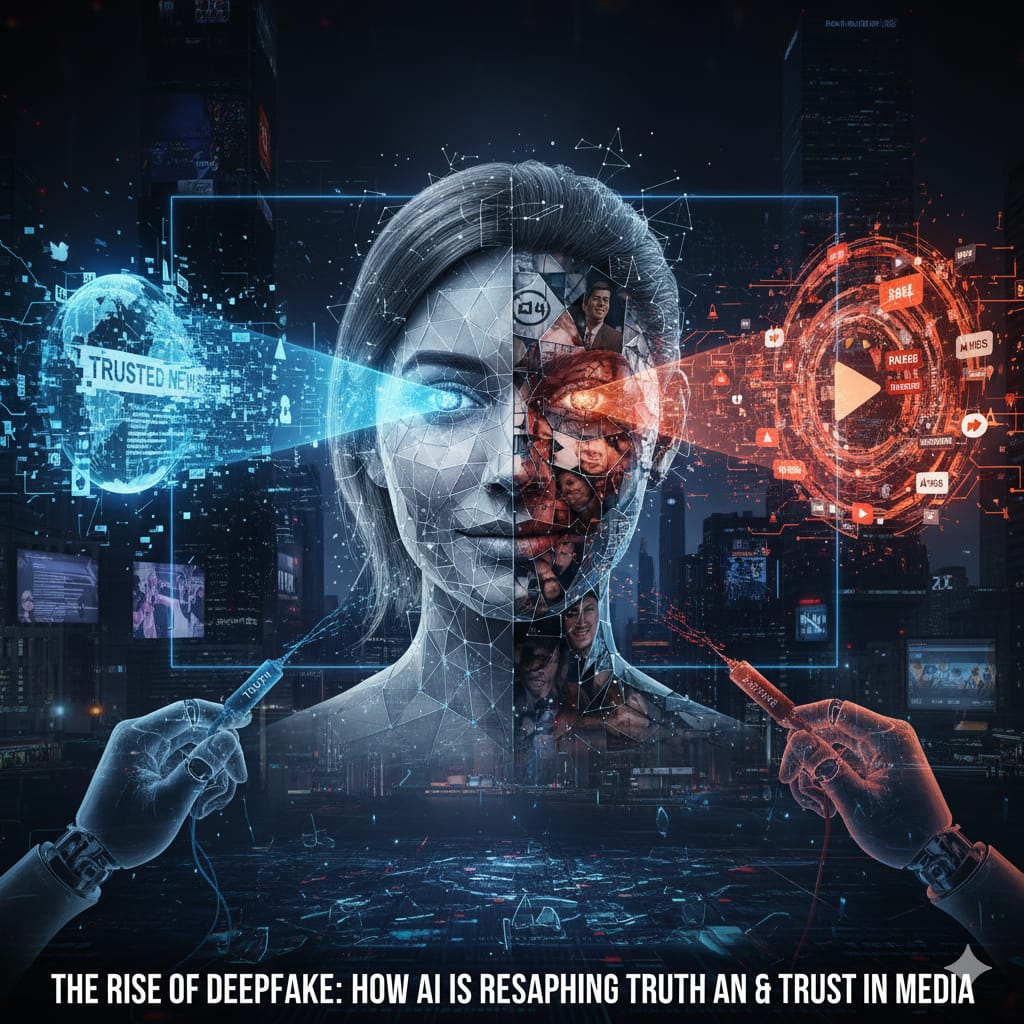Introduction to Today's AI Landscape
The artificial intelligence sector continues to evolve at an unprecedented pace, with breakthroughs emerging across multiple domains simultaneously. On September 8, 2025, the AI landscape witnessed significant developments ranging from major corporate investments and scientific achievements to political controversies and ethical settlements. These developments highlight how AI is increasingly embedded in technological, social, and political frameworks worldwide. From European sovereignty in AI development to healthcare breakthroughs and copyright settlements, today's news demonstrates both the rapid advancement of AI capabilities and the complex challenges accompanying its integration into society.
ASML Becomes Mistral AI's Largest Shareholder in Historic European AI Investment
In a move that significantly strengthens Europe's position in the global AI race, Dutch chip equipment giant ASML has led a €1.7 billion funding round for French AI startup Mistral AI, investing €1.3 billion to become the company's largest shareholder. The investment values Mistral at approximately €10 billion, establishing it as Europe's most valuable AI company.
| Company | Investment | Valuation | Significance |
|---|---|---|---|
| ASML | €1.3B | N/A | Becomes largest shareholder |
| Mistral AI | Total €1.7B | €10B | Europe's most valuable AI company |
According to sources, ASML will likely gain a board seat and could integrate Mistral's AI and analytics capabilities into its advanced lithography tools, potentially boosting efficiency and development processes. This strategic partnership represents a substantial step toward strengthening Europe's technological sovereignty and reducing dependence on U.S. and Chinese AI ecosystems.
Anthropic Agrees to Landmark $1.5 Billion Copyright Settlement
AI developer Anthropic has agreed to pay at least $1.5 billion to resolve a class-action lawsuit alleging the company trained its Claude AI models using pirated copies of approximately 500,000 books sourced from shadow library sites.
- Settlement amount: $1.5 billion (largest copyright settlement in U.S. history if approved)
- Compensation: Approximately $3,000 per infringed book for affected authors
- Additional requirement: Anthropic must destroy the pirated dataset used in training
- Precedent: Follows another confidential settlement with The New York Times
These cases represent pivotal moments in the ongoing debate over fair use and intellectual property rights in the age of generative AI, potentially establishing new precedents for how AI companies approach training data acquisition.
AI Healthcare Breakthroughs: Cardiac Care and Vaccine Prediction
Researchers at West Virginia University have developed AI models that detect heart failure in rural patients using low-tech ECG data, outperforming traditional systems trained primarily on urban populations. This advancement addresses significant healthcare disparities by ensuring better diagnostic accuracy for underserved communities.
Simultaneously, a new machine learning platform named VaxSeer has demonstrated superior performance compared to WHO recommendations in predicting optimal flu vaccine strains.
| Application | Institution | Achievement | Impact |
|---|---|---|---|
| Cardiac care AI | West Virginia University | Detects heart failure in rural patients | Bridges healthcare access gaps |
| VaxSeer platform | Multiple institutions | Outperformed WHO in 7 of 10 years for H1N1 | Improves vaccine efficacy predictions |
Policy and Copyright Developments in AI
Chinese social media platforms including WeChat, Douyin, and Weibo have implemented comprehensive AI-labeling measures to comply with China's new AI regulations, representing the first major national mandate for AI content disclosure at scale.
- Regulation scope: Requires clear labeling or watermarking of AI-generated content
- User participation: Allows users to flag unlabeled synthetic media
- Detection methods: Platforms using crawlers with metadata analysis
- Broader context: Part of China's effort to curb misinformation and enforce digital accountability
In other policy-related AI news, Apple faces a lawsuit from three prominent authors over allegedly using their copyrighted books to train AI models without permission. This case could set a major precedent in AI training practices and copyright enforcement.
Business AI Integration: Workforce Impacts and Search Technology
Salesforce CEO Marc Benioff revealed that AI agents now handle roughly half of all customer service interactions, enabling the company to reduce its support staff from 9,000 to 5,000 employees.
| Company | AI Implementation | Workforce Impact | Additional Benefits |
|---|---|---|---|
| Salesforce | AI handles 50% of customer service | Support staff reduced by 44% | Reconnected with 100M neglected leads |
| Exa | AI-specific search engine | N/A | $85M Series B at $700M valuation |
In search technology, San Francisco-based startup Exa has closed an $85 million Series B funding round led by Benchmark, valuing the company at approximately $700 million. Exa offers a search engine and API specifically designed for AI agents.
AI-Powered Protein Design Breakthrough Wins Prestigious Science Prize
Dr. Minkyung Baek, assistant professor at Seoul National University, has been awarded the 2025 APEC Science Prize for Innovation, Research, and Education (ASPIRE) for pioneering AI-powered protein design. Her research focuses on AI-driven protein structure prediction and design, accelerating vaccine development and expanding access to advanced research methods.
- Researcher: Dr. Minkyung Baek, Seoul National University
- Award: 2025 APEC Science Prize for Innovation, Research, and Education
- AI tool: RoseTTAFold for protein structure prediction
- Impact: Accelerates vaccine development and drug discovery
- Prize: $25,000 sponsored by Ministry of Science and ICT of Korea
Political Dimensions of AI: Deepfakes and Immigration
U.S. President Donald Trump shared an AI-generated image on Truth Social depicting himself over a fiery, helicopter-filled Chicago skyline in a stylized reference to "Apocalypse Now." The post, captioned "Chipocalypse Now" and quoting "I love the smell of deportations in the morning," appeared to signal a militarized immigration crackdown.
This use of AI-generated imagery for political communication coincides with a CBS New York report warning that deepfake AI videos are becoming more convincing and harder to detect. Experts note these videos are increasingly being used in political misinformation, scams, and personal revenge.
| Platform | Content Type | Political Context | Reactions |
|---|---|---|---|
| Truth Social | AI-generated image | Immigration policy signaling | Protests in Chicago |
| Various | Deepfake videos | Political misinformation | Calls for improved detection |
Emerging AI Applications and Ethical Considerations
Smart lighting company Lepro has unveiled a new line of AI-powered lights that "listen" to conversations and adjust lighting accordingly based on detected user intent—such as planning dinner or watching a movie. This innovation pushes ambient intelligence deeper into everyday life, though privacy advocates warn it may raise significant surveillance concerns.
- Product: AI-powered smart lighting by Lepro
- Functionality: Adjusts lighting based on conversation analysis
- Benefits: Enhanced ambient intelligence
- Concerns: Potential privacy violations and surveillance issues
Meanwhile, a new AI ethics study warns that unchecked AI could undermine privacy and human dignity, describing the technology as "not intelligent in any human sense" and urging global regulation. These concerns highlight the growing tension between AI innovation and ethical safeguards.
Summary
The AI developments of September 8, 2025, demonstrate the technology's increasingly diverse impact across sectors and societies. From substantial corporate investments strengthening European AI capabilities to landmark copyright settlements that may redefine training practices for AI models, these developments highlight both the rapid advancement and ongoing maturation of the AI ecosystem.
Breakthroughs in healthcare AI show particular promise for addressing disparities in medical access, while political uses of AI-generated content raise important questions about regulation and ethics. As AI continues to evolve at an extraordinary pace, these developments collectively paint a picture of a technology that is simultaneously delivering significant benefits while presenting complex challenges that require thoughtful governance and oversight.
The coming years will likely see these trends accelerate, making ongoing analysis of AI's development increasingly crucial for understanding its impact on business, society, and global relations.




